|
Saturn system
|
|
| HarbingerDawn | Date: Saturday, 14.12.2013, 10:26 | Message # 121 |
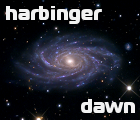 Cosmic Curator
Group: Administrators
 United States
United States
Messages: 8717
Status: Offline
| The night side of Enceladus, illuminated by Saturn, with the geysers clearly visible, AND A SHADOW CAST ON THE E-RING!!! 
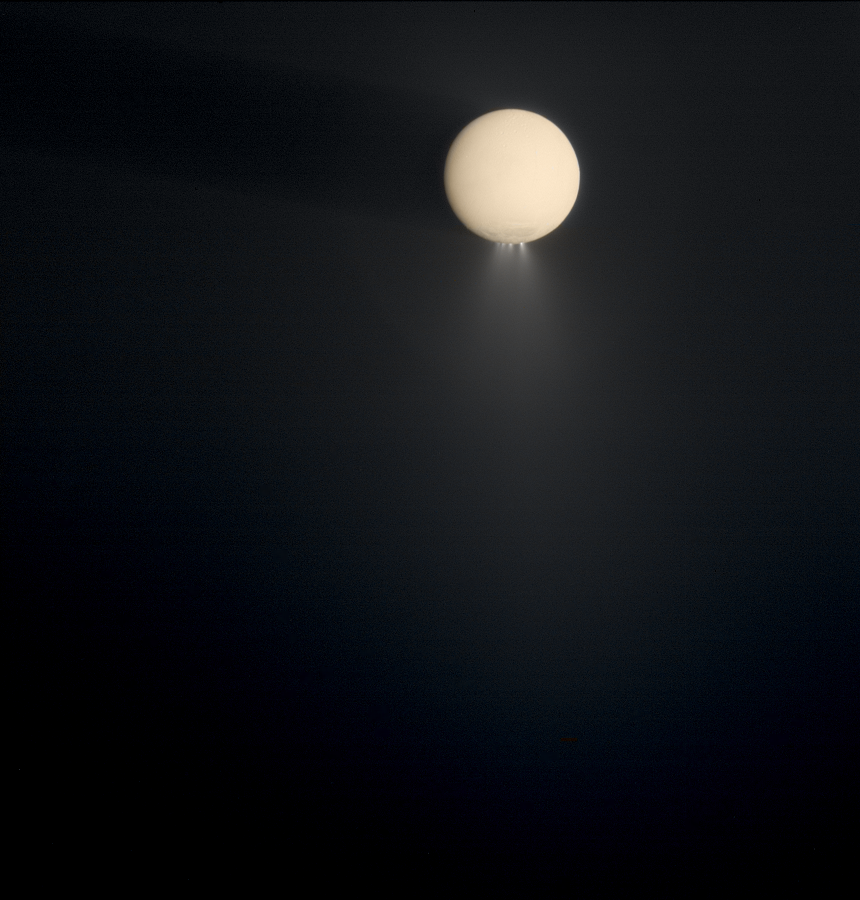
All forum users, please read this!
My SE mods and addons
Phenom II X6 1090T 3.2 GHz, 16 GB DDR3 RAM, GTX 970 3584 MB VRAM
|
| |
| |
| HarbingerDawn | Date: Thursday, 13.02.2014, 19:59 | Message # 122 |
 Cosmic Curator
Group: Administrators
 United States
United States
Messages: 8717
Status: Offline
| The first ever color mosaics of Phoebe


All forum users, please read this!
My SE mods and addons
Phenom II X6 1090T 3.2 GHz, 16 GB DDR3 RAM, GTX 970 3584 MB VRAM
|
| |
| |
| Atmoscat | Date: Friday, 14.02.2014, 00:24 | Message # 123 |
 Astronaut
Group: Users
 Germany
Germany
Messages: 68
Status: Offline
| Oh wow, these are absolutely stunning, so beautiful! I wish we had a hi-resolution full globe color albedo map and a 3d terrain model like we have of VESTA in SE. Thanks for sharing! UMSF rocks!
PC: Intel® Core™2 Duo Processor E8500 @ 3.16GHz, 3.25 GB / 4.00 GB DDR3 RAM, GeForce GTX750Ti 2048 MB VRAM, WinXP Home 32bit / Windows7Pro 64bit
|
| |
| |
| HarbingerDawn | Date: Monday, 24.03.2014, 07:37 | Message # 124 |
 Cosmic Curator
Group: Administrators
 United States
United States
Messages: 8717
Status: Offline
| We finally know the true colors of Saturn's aurorae!

Red is on the bottom, purple is on top. The aurora has been colorized in this image, but the color information used to determine the actual colors is real. The aurora in this image is 1400 km high.
Edit Saturn's aurora tag to this to get a more accurate appearance:
Code Aurora
{
Height 1000 // km
TopColor (1.5 0.0 0.8)
BottomColor (1.0 0.1 0.0)
NorthLat 90 // degrees
NorthLon 0 // degrees
NorthRadius 15000 // km
NorthWidth 5000 // km
NorthRings 3 // number of rings
NorthBright 3.0
NorthParticles 400000
SouthLat -90 // degrees
SouthLon 0 // degrees
SouthRadius 16000 // km
SouthWidth 5000 // km
SouthRings 3 // number of rings
SouthBright 3.0
SouthParticles 400000
}
If it lags too much reduce the number of particles. I increased them to make it look nicer but I also have good hardware so it might not perform as well on other machines.
All forum users, please read this!
My SE mods and addons
Phenom II X6 1090T 3.2 GHz, 16 GB DDR3 RAM, GTX 970 3584 MB VRAM
Edited by HarbingerDawn - Monday, 24.03.2014, 07:46 |
| |
| |
| DoctorOfSpace | Date: Monday, 24.03.2014, 18:39 | Message # 125 |
 Galaxy Architect
Group: Global Moderators
 Pirate
Pirate
Messages: 3600
Status: Offline
| Looks pretty good.
Intel Core i7-5820K 4.2GHz 6-Core Processor
G.Skill Ripjaws V Series 32GB (4 x 8GB) DDR4-2400 Memory
EVGA GTX 980 Ti SC 6GB
|
| |
| |
| Solaris | Date: Friday, 04.04.2014, 04:40 | Message # 126 |
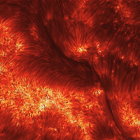 World Builder
Group: Global Moderators
 France
France
Messages: 731
Status: Offline
| Great new images from Cassini featuring the Saturn's north pole ! take a look.

Now I couldn't leave those unanimated.. All images were received on Earth April 03, 2014.
Here is my quick and simple gif (32Mo) :

I truly can't wait to see this one in full res well processed, and in colors!
|
| |
| |
| HarbingerDawn | Date: Friday, 04.04.2014, 13:14 | Message # 127 |
 Cosmic Curator
Group: Administrators
 United States
United States
Messages: 8717
Status: Offline
| Wow, magnificent images Solaris! I can't wait to see a color version 
All forum users, please read this!
My SE mods and addons
Phenom II X6 1090T 3.2 GHz, 16 GB DDR3 RAM, GTX 970 3584 MB VRAM
|
| |
| |
| SolarLiner | Date: Sunday, 06.04.2014, 14:00 | Message # 128 |
 Explorer
Group: Users
 France
France
Messages: 267
Status: Offline
| Quote SpaceEngineer (  ) I still can't imagine the fast and simple algorithm to implement the ringshine (except ray-tracing).
Maybe with two custom plot functions , one fuction of the light direction (from 0 to -1, -1 being the exact opposite direction of the light source), and the other is based on the latitude (if the equator is on the same plan as the rings). You plot entering the two, and get out with a brightness value to add to the planet.
Just a thought reading the thread, no idea how easy it can be implemented.
custom landing page to share: http://bit.ly/spaceengine
|
| |
| |
| SpaceEngineer | Date: Sunday, 06.04.2014, 20:20 | Message # 129 |
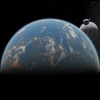 Author of Space Engine
Group: Administrators
 Russian Federation
Russian Federation
Messages: 4800
Status: Offline
| Do you talk about lookup texture with precomputed lighting? It will work of course, but how to compute this texture? The better way is render planetary rings from many points on planet surface and from many inclination of the sun. But this may be too slow.

|
| |
| |
| SolarLiner | Date: Thursday, 26.06.2014, 13:55 | Message # 130 |
 Explorer
Group: Users
 France
France
Messages: 267
Status: Offline
| Quote SpaceEngineer (  ) Do you talk about lookup texture with precomputed lighting? It will work of course, but how to compute this texture? The better way is render planetary rings from many points on planet surface and from many inclination of the sun. But this may be too slow.
Yeah, some sort of lookup table, or better (and you did think of that as I did not so long ago) a render of the indirect lighting.
It wouldn't be as complex as you think because indirect light cast by the rings are diffuse light, which bounce in all directions, and not specular light, which is dependent of the angle of the light source.
Here is a quick render of the indirect lighting at Saturn inclination:

And here is a render at 30° inclination (where the indirect lighting is at its best because little-to-no shadow on the ring) :

(Note for the renders: I rendered this 20x the normal exposure to make the indirect lighting show up better)
So at worse there is 30 different textures, but since it only differs by a little, a texture for each 5° interval will be enough, omitting 0° inc (no indirect lighting) and 30° (full indirect lighting).
In other news : Cassini may have witnessed the birth of a new moon in Saturn's rings! [NASA article]

Someone get ready to modify the databases ! 
custom landing page to share: http://bit.ly/spaceengine
Edited by SolarLiner - Thursday, 26.06.2014, 13:56 |
| |
| |
| SpaceEngineer | Date: Friday, 15.08.2014, 13:28 | Message # 131 |
 Author of Space Engine
Group: Administrators
 Russian Federation
Russian Federation
Messages: 4800
Status: Offline
| Clouds over lake on Titan: http://www.jpl.nasa.gov/news/news.php?release=2014-274


|
| |
| |
| Zaddy23 | Date: Friday, 05.09.2014, 05:09 | Message # 132 |
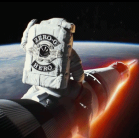 Space Pilot
Group: Users
 Australia
Australia
Messages: 129
Status: Offline
| Quote Solaris (  ) Great new images from Cassini featuring the Saturn's north pole !
Aww, no hexagon. 
Along with fezes and bowties, brown dwarves are cool.
|
| |
| |
| HarbingerDawn | Date: Friday, 05.09.2014, 09:04 | Message # 133 |
 Cosmic Curator
Group: Administrators
 United States
United States
Messages: 8717
Status: Offline
| Quote Zaddy23 (  ) Aww, no hexagon.
The hexagon fills the frame. Its edges are near or just beyond the border of the image.
All forum users, please read this!
My SE mods and addons
Phenom II X6 1090T 3.2 GHz, 16 GB DDR3 RAM, GTX 970 3584 MB VRAM
|
| |
| |
| Watsisname | Date: Friday, 05.09.2014, 11:53 | Message # 134 |
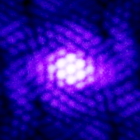 Galaxy Architect
Group: Global Moderators
 United States
United States
Messages: 2613
Status: Offline
| It's so fascinating to see analogues of the hydrologic cycle on other worlds, with different temperatures and compositions.

|
| |
| |
| spacer | Date: Wednesday, 01.10.2014, 12:34 | Message # 135 |
 Star Engineer
Group: Users
 Israel
Israel
Messages: 1258
Status: Offline
| so i heard that cassini detected waves on titan lakes... 
"we began as wanderers, and we are wanderers still"
-carl sagan
-space engine photographer
|
| |
| |